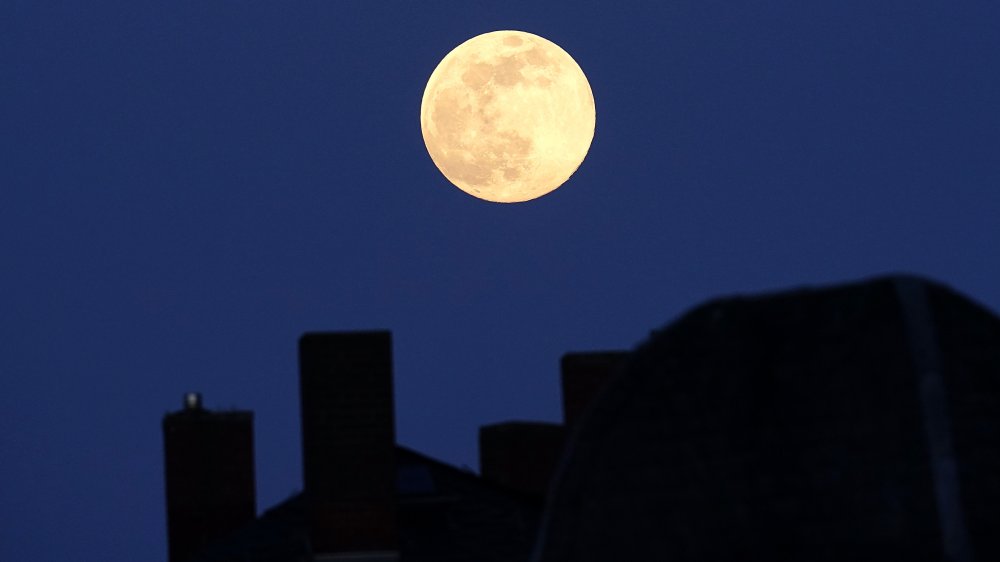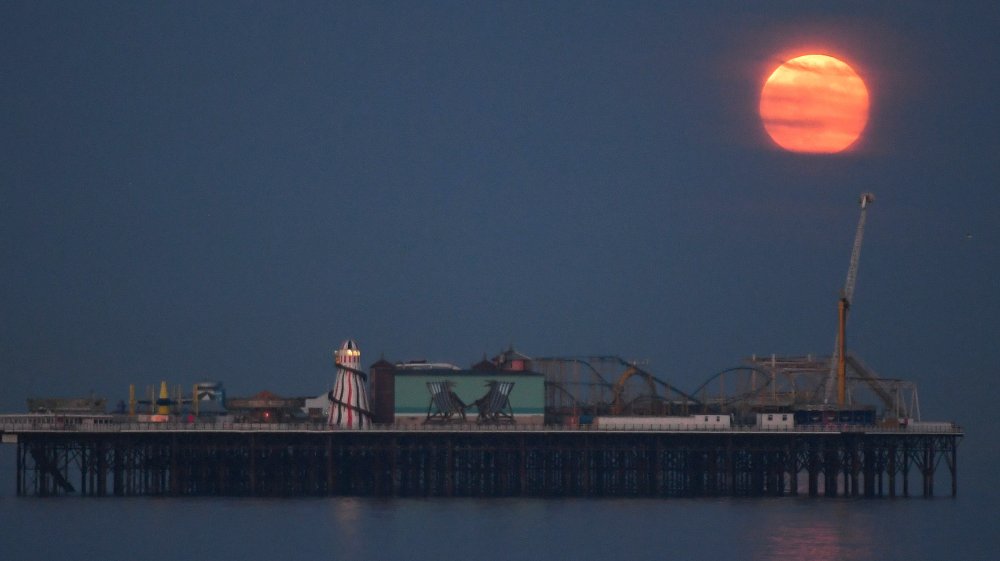Science Has Proven This Old Belief About Full Moons
The full moon makes you crazy. At least that's how the saying goes. Unlike other expressions, this one may have been proven by science.
The moon supposedly makes people act differently. All those stories of people turning into beasts like werewolves when the moon is full could just be a way to explain these behavioral changes. According to LiveScience, there have been many studies trying to link how the moon affects people, particularly in regard to sleep patterns. One of the prevailing theories being studied by scientists is that the full moon's light may disrupt sleep cycles. This, of course, was a more significant concern before the advent of indoor lighting. Scientists conducted tests to see if additional illumination at night actually has an effect. After all, if you don't get enough sleep, you get really cranky and crazy. The study, conducted in 2013, reports Cell, found people slept less during the full moon even if they weren't aware of its current cycle. Another study looked at children's sleep patterns, where kids slept five minutes less with a full moon.
Scientists are still trying to figure out why people sleep less during a full moon. While it might make sense that it's the additional light at night, in an age of computers, TV, and light pollution, additional nocturnal illumination might not be the answer.
When the moon hits your eye
And it isn't just sleep that a full moon can disrupt. According to Accuweather, lunacy may be linked to a full moon. At least two studies, one hosted by the National Criminal Justice Reference Service, showed the moon's gravitational influence could bring social tension. The other traced the full moon's link to crime and found increased aggravated assault and homicide cases reported in Florida during full moons. Though people claim injuries and emergency room visits happen more during full moons, LiveScience reported that a 1996 study on emergency room visits did not find any difference in the volume of patients between a regular night and a night with a full moon. Nor has that age-old belief that the moon regulates women's menstrual cycles been proven. So, sorry to the people who branded menstrual cups with moon-related names. LiveScience points out that there have been many tests around this theory, but none have ever been conclusive. Accuweather suggests it may all be a coincidence. Since the moon has a regular cycle, and menstrual periods are more or else predictable, it just seems like they sync up.
So the next time someone mentions how crazy the night will be because the moon is full, there may be some truth to that statement.

